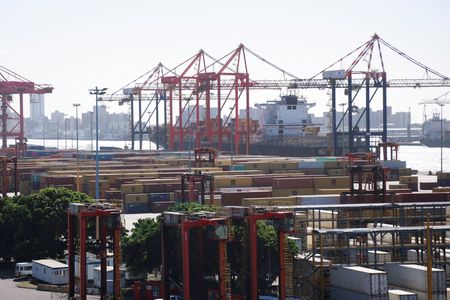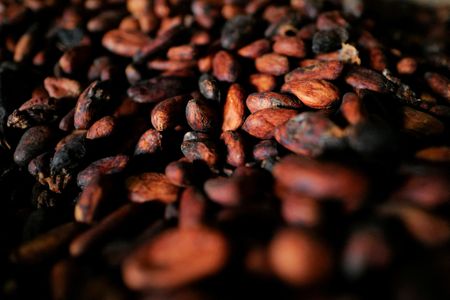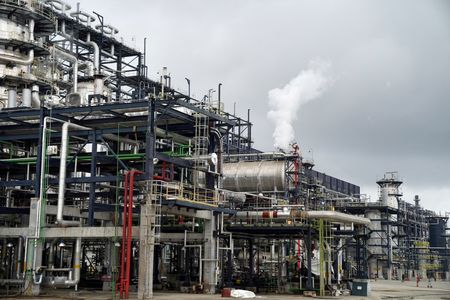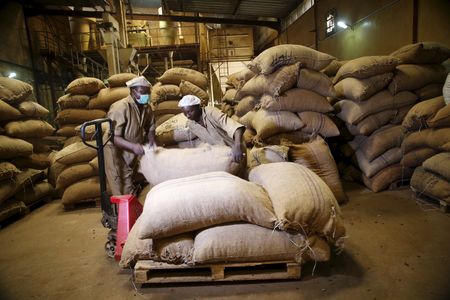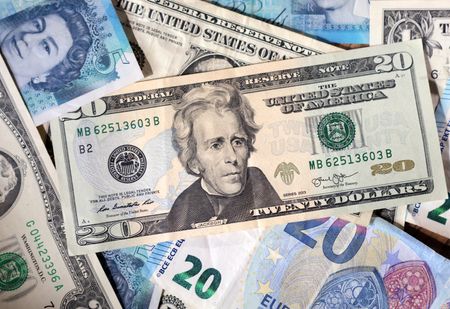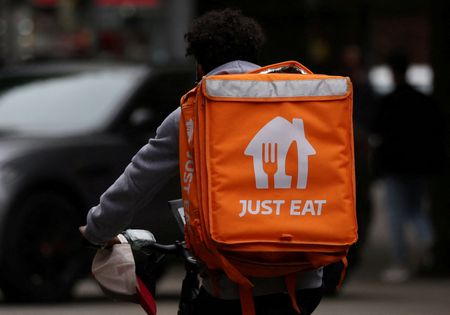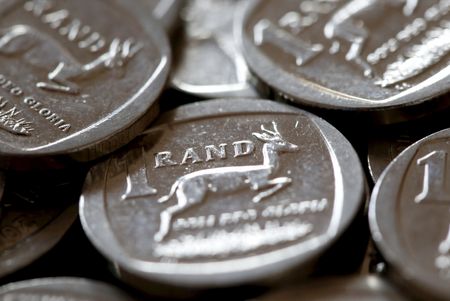By Nellie Peyton
JOHANNESBURG (Reuters) -The second biggest party in South Africa’s ruling coalition thinks the 30% tariff Donald Trump imposed on its exports to the U.S. will stay unless the government changes some domestic race policies such as affirmative action, its leader said on Monday.
The government of South Africa, Africa’s biggest economy, has tried for months to negotiate a trade deal with Washington but failed to reach agreement before Trump’s deadline.
Its exports to the U.S. now face the highest tariff rate in sub-Saharan Africa.
“It is very clear that while we’ve been negotiating on a trade track, the issues with the Trump administration are deeper than that,” Democratic Alliance (DA) leader John Steenhuisen told Reuters in an interview.
“These cover things (like)… expropriation without compensation. It deals with some of the labour laws in the country and also the racial legislation,” Steenhuisen said.
He added that South Africa’s membership of the BRICS bloc centred around Brazil, Russia, India and China – and which aims to challenge U.S. hegemony – was also an issue for the Trump administration.
The pro-business DA party has long opposed South Africa’s Broad-based Black Economic Empowerment (BEE) Act and other laws which aim to address the racial inequality that has persisted since the end of apartheid. It says they should be replaced with non-racial measures to boost the economy and create jobs, such as removing red tape and simplifying business licensing.
But Steenhuisen also said he thought it was “odd” that the Trump administration was linking such issues to trade.
“Just as we would not seek to interfere in the domestic politics of the United States of America, we would expect that issues that relate to our own sovereignty are also respected,” he said.
APARTHEID’S LEGACY
President Cyril Ramaphosa and his party, the African National Congress – which swept to power in 1994 on the back of its success in ending racist white minority rule – are unlikely to make concessions on issues such as BEE.
The ANC regards it as a flagship policy meant to address apartheid’s legacy: white South Africans are still on average by far the wealthiest racial group, while the majority of the country’s poor are Black.
The ANC also says concerns over the Expropriation Act signed this year, which enables the government to address inequalities in land ownership in rare cases by seizing it for redistribution, are overblown. No land has been taken under the law.
Steenhuisen said these laws could not be changed overnight to please the U.S. because they have to be debated at length in parliament.
But Steenhuisen said he thought it might improve relations if South Africa sent a “signal” that it intended to move in that direction.
“My worry is that we’re going to continue to negotiate on tariffs and trade… (and) the 30% is going to remain,” he said.
Steenhuisen serves as agriculture minister in Ramaphosa’s cabinet. Agriculture is one of the sectors worst hit by the tariffs.
(Additional reporting by Siyanda Mthethwa, Alexander Winning and Sfundo Parakozov;Editing by Tim Cocks and Gareth Jones)

